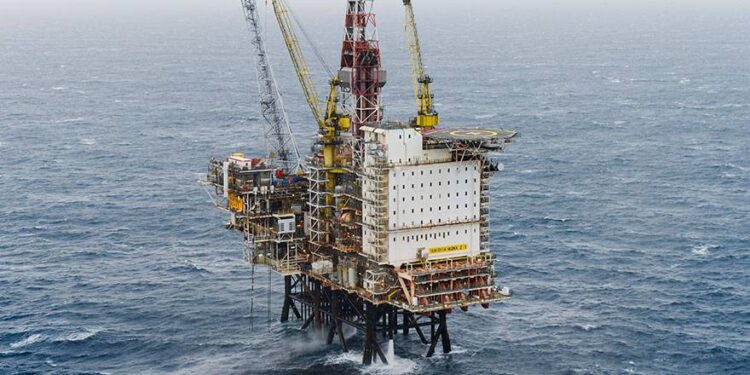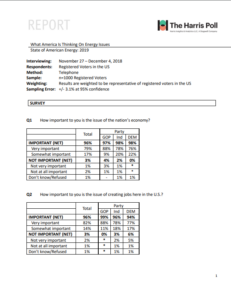A group of House Democrats introduced a suite of eight bills, on December 8, aimed at blocking President Trump’s proposal to expand offshore oil and natural gas drilling around the country. The bills occurred as Trump administration is to release the Bureau of Ocean Energy Management’s (BOEM) Proposed Outer Continental Shelf Oil and Gas Leasing Program, that will define the administration’s vision of drilling procedures.
Specifically, the Draft Proposed Program, released in January 2018, would have opened more than 90 % of American waters to oil and gas development. The proposition had a majority being opposed to it, as California.
Also, many were the bipartisan coalition governors who asked then-Interior Secretary Ryan Zinke for state-level drilling exemptions. BOEM, who in the past assessed all waters offshore the US Atlantic Coast for potential future offshore wind lease locations, is still expected to open some areas of the Atlantic, Pacific and Eastern Gulf of Mexico regions and some Alaskan waters to leasing.
According to Raúl M. Grijalva, Natural Resources Committee Chairman
Today’s bills are about a cleaner, more sustainable future for our country. The American people don’t want oil rigs on every beach up and down our coasts, and our economy doesn’t need them.
On the contrary to the opposition, many important environmental organisations and coalitions are supportive of the package. Specifically, Alexandra Adams, Legislative Director, Nature Program, Natural Resources Defense Council, stated that the Trump administration is in favour of the public, not only the oil industry.
Additionally, Natalie Levine, Program Manager, Park Resource Protection, National Parks Conservation Association, who stated that the coast accommodates 68 national park sites that are destinations for millions of annual visitors and havens for birds, sea turtles, whales and other wildlife.
She continued that as the administration allows dangerous seismic testing to occur in the Atlantic Coast, the House is getting back to work protecting the coastal parks, and the marine life they support, from expanded drilling.
Moreover, Carrie Clark, Executive Director of the North Carolina League of Conservation Voters, spoke in favour of local government and businesses across North Carolina saying that the drilling will not take place at their coast.
However, the American Petroleum Institute released a statement in response, stating
Closing the door on offshore development could hurt local economies, as well as America’s energy security, and is a step in the wrong direction.
API President and CEO Mike Sommers calls policymakers to enact policies that support technological innovation and open markets, impement effective trading policy and expand US energy infrastructure.
Also, Mike Sommers published the results of a new energy poll on what Americans think about U.S. natural gas and oil:
- 84% support increased development of the country’s energy infrastructure;
- 83% see natural gas and oil as important to the future;
- 78% of voters support increased production of natural gas and oil resources;
- 77% support energy policies that the natural gas and oil industry advocates: a secure supply of abundant, affordable and available energy;
- 75% support the role natural gas is playing in reducing greenhouse gas emissions;
- 90% see personal value in natural gas and oil.
Concluding, the bills opposing to Trump’s proposal include
- Rep. Frank Pallone, Jr. (D-N.J.), chairman of the House Energy and Commerce Committee – The Clean Ocean and Safe Tourism (COAST) Anti-Drilling Act of 2019;
- Rep. Joe Cunningham (D-S.C.) – The Coastal Economies Protection Act of 2019;
- Rep. Salud Carbajal (D-Calif.) – The California Clean Coast Act 2019;
- Rep. David Cicilline (D-R.I.) – The New England Coastal Protection Act of 2019;
- Rep. Kathy Castor (D-FL) – The Florida Coastal Protection Act of 2019;
- Rep. Jared Huffman (D-Calif.) – The West Coast Ocean Protection Act of 2019 and the Stop Arctic Ocean Drilling Act of 2019;
- Rep. A. Donald McEachin (D-Va.) – The Defend our Coast of 2019.
For more information on API’s poll ‘What America Is Thinking On Energy Issues 2019’ see herebelow































































